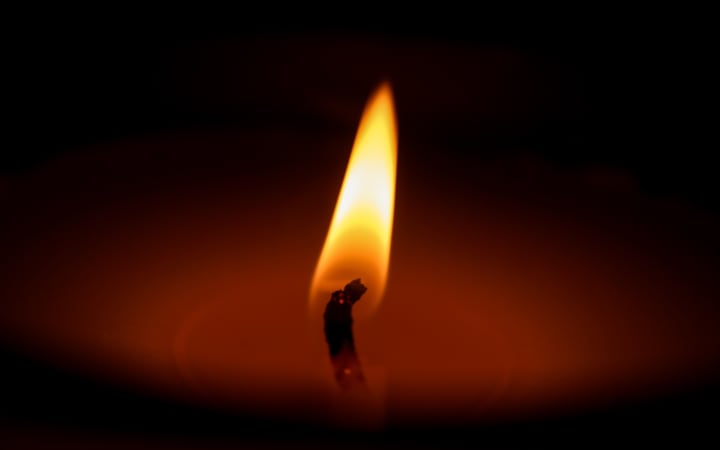Humility into the light of dawn
Two great poets who taught us the virtue of humbling ourselves before the immortal sovereignty of the light of dawn they encountered towards the end of their lives

What does the metaphor of "into the light of dawn" mean to me? Well, for one, it’s a commonplace thing. We all experience the dawn-light, in one way or other, every day. It can also be about continuation, especially when linked with the word "into" – somehow, I journey from night into day. That’s quite hopeful in emotional tone, isn’t it?
But it can also mean things that I might not really want to mean. During the night, a cloak of darkness settles over stuff – ideas, concepts – that I don’t want to see. In the dawning light of day, all these objects, whether literal or emotional, are brought to my attention. Definitely and unavoidably. In all the horrors and sharp edges that might occur to me.
In some ways, then, "going into the light of the dawn" symbolises an act of removing my securities: I am confronted with the need to face things as they are.

Perhaps there’s a third emotional meaning. While it is still dark, I use artificial light sources to find my way around. To read; to explore. These lights might be limited in scope, or reliability – a flickering candle, perhaps, or a dim torch. My aids to see are unsure; they only help me see so far, or much. As daylight strengthens, I am gifted the ability to perceive more distantly, more surely; to witness the world in all its splendour and plenitude. The glory of the emerging daylight outshines and renders unnecessary my puny light.
How then, I wonder, are these reflections connected to "humility"?
Well, perhaps it means to me that I am not really any different from anyone else. No greater, certainly; nor more capable of knowing, or doing. So then my thoughts and reflections about what I am and what I do are commonplace: nothing out of the ordinary. That also makes humility relatable, doesn’t it?
To be humble also means I accept that there are boundaries beyond which I do not know. Perhaps, can not know. I think this kind of humility is more profound than not knowing all there is to know about my chemistry paper, for example. Or even the sense that answering one question creates two more. Perhaps humility means accepting that I do not suffice. I am not capable of meeting the challenge of knowing all about who I am, or everything about what the world is like.
The greatest artists, writers, and scientists know humility. They embrace not knowing. Revel in it. And want to really explore it. Some of them have used the metaphors I’ve written about above when investigating these meanings of humility.
One of them, Philip Larkin, wrote with great humility: he wrote with simplicity, sparingly, about his life and thoughts. Among his best known poems, ‘Aubade’ explored his feelings about his fear of death. About the way in which these fears at times consumed him, almost paralysed him. About his mental thrashing around as he tried to discover a way out of the chilling fate of not being.

His stanzas take me through his night, to the point at which the light of dawn begins to seep around the edges of his bedroom curtains. As "light strengthens" the object of his fears "stands plain as a wardrobe" – that he "can’t escape, yet can’t accept". Like the unstoppable force meeting the immovable object, "one side will have to go". The reality of his "uncaring" world, with its "crouching telephones" and "locked-up offices" is revealed in the growing light. That Larkin doesn’t know how to address his dilemma is made plain through his metaphors of a "clay-white sky" "with no sun". Yet, is there healing deliverance beyond his ken, in the form of "postmen like doctors"?
One of the hallmarks of a great thinker is that they help me consider things that had never occurred to me before. So it is with Larkin, as he continues to explore his theme of the dread of being extinguished through metaphors of light and darkness in a lesser known poem, ‘Come then to prayers’.
Kneeling on the stone in prayer, his efforts to conquer his despair require him to "give up prid"’. Even "the last difficult pride in being humble". In confronting his fears, all aspects of Larkin’s personality are peeled away, until even his attachment to being humble has to be given up. As the poem progresses, he opens the window to the night air "from a salt grave" that he "may be parted from the darkness": fully confront his existential fears.
For Larkin, it is only as "the unmeasured sword / Rising from sleep to execute our crown / Rest on our shoulders" – only as he truly comes face to face with his fears – that he can "rest / On the outdistancing, all-capable flood / Whose brim touches the morning". Outdistancing, or running ahead, and touching the morning, symbolising somehow both hope and certainty. Yet only "touches", not becomes. This place where he allows himself to rest "where undriven the dawn" sparks something within him that makes him "noble". And so Larkin, though seemingly steeped in the darksome night of despair, allows himself the chance of another life, transformed for the better.
I think that this beautiful yet challenging symmetry of humility juxtaposed with a metaphor of movement towards the dawn is also to be found in Shakespeare’s ‘The Tempest’. In what most consider to be one of his final works, the often interpreted alter-ego character of Prospero reflects on the approaching end of his works.

His "actors" "were all spirits" that "melted into thin air" – they fade, like mist, in the light of the morning sun. The imaginary spectacle that he has weaved for the audience is "like the baseless fabric of this vision" – like a show, a daydream, a memory. All of it, "the cloud-capped towers, the gorgeous palaces, / The solemn temples", these great, glorious monuments to human skill, and labour, and money, and power. Even "the great globe itself", a reference to the stage on which his creations strut. All of his creations dissolve, fade away.
Shakespeare, in this speech he has his character deliver, leaves no doubt about the link he wishes to make between his own creative powers and those of the fictional Prospero. They are "like this insubstantial pageant faded / Leave not a rack behind" – a creation made entirely of words, music, and flimsy stage props, fades away, leaving not even a ‘rack’ or wisp of cloud. "We are such stuff / As dreams are made on" – the playwright himself, though made of mere ‘stuff’ has created these ‘dreams’, which now fade. And now his "little life" is punctuated by perhaps chances to make other dreams?
Later, at the culmination of the play, Shakespeare has Prospero give up ("abjure") his limited, clumsy abilities, his "rough magic", but for one final enchantment "when I have required / Some heavenly music … To work mine end upon their senses that / This airy charm is for" that he has his wizardly character perform. Then, in punctuated monosyllabic text for emphasis, "I’ll break my staff", destroy and put beyond use his badge of office and sign of identity. An act often associated at the time with funerary rites, he reinforces the message by writing that he will "bury" it "certain fathoms in the earth". Further, he will "drown my book" "deeper than did ever plummet sound" – further than the lead weight used to measure the depth of water can go.
To me, this is a very final-sounding admission of Shakespeare’s limits to his abilities, as well as of course the process of giving up – becoming detached from – all that he has created, as he realises the light of the candle he held to the world grows ever more insignificant with the approaching hour of dawn.

Horace Holley, in his ‘The Writings of Baha’u’llah’, uses an analogy of players on a fine musical instrument. Authors may make certain notes sound, according to their capacity, while they yet reside in this phase of existence. Yet, the ‘silent notes’ that Shakespeare could not invoke during the night, when only lit by his candle light, could potentially be realised as he ventured into the dawn-light. As Holley masterfully wrote:
For me, the brightening light of dawn symbolises all that Larkin or Shakespeare dares not hope for themselves, yet wishes for too.
I think it takes real courage to truly embrace the uncertainty of not knowing.
About the Creator
Andrew Scott
Student scribbler






Comments (1)
Lovely read. Thanks for sharing!